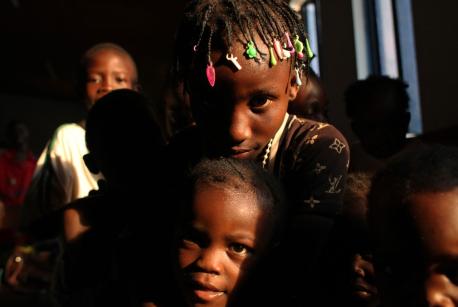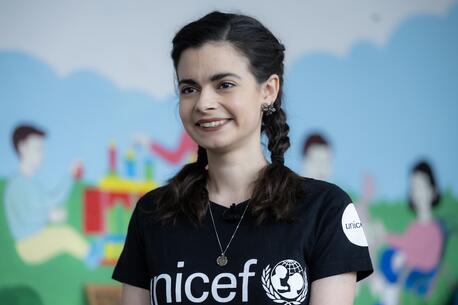
UNICEF's Anthony Lake: Central African Republic at a "Tipping Point"
A new interim president, Catherine Samba-Panza, was appointed on Monday in the Central African Republic (CAR), prompting renewed hope that the crisis in the troubled country will finally come under control.
Samba-Panza, the former mayor of Bangui, the capital, and a leader of past reconciliation efforts, took office after the resignations of the interim President and Prime Minister on January 10.
Meanwhile, nearly 900,000 people remained internally displaced, many having fled their homes as they burned to the ground. 2.3 million children have been affected by the conflict and half of the population is in need of humanitarian assistance.
Anthony Lake, UNICEF’s Executive Director, called the current situation a “tipping point” during his visit to CAR last week. “It could go over the edge and we could see a new round of atrocities and barbaric violence. On the other hand, there are signs of progress,” Lake says in the video below. “We have to tip the tipping point in the right direction.”
The United Nations is stepping up its response. John Ging, director of operations for the UN Office for Coordination of Humanitarian Affairs, warned against “the seeds of a genocide” at a news conference in Geneva on January 16. The situation has escalated over the last several weeks, with reports of extreme violence—some targeting children. UN Secretary-General Ban Ki-Moon called for an immediate end to hostilities in a statement on Monday, saying the country “is in free fall”.
Humanitarian organizations, including UNICEF, have been calling for more attention to the crisis since the violence started in December 2012. In a country described as “chronically ignored” by Sarah Terlouw, country director for the International Rescue Committee in CAR, persistent fighting between Christian and Muslim groups has created a climate of chaos and brutal violence.
 Women set up at a camp for internally displaced people near the airport in Bangui, Central African Republic. ©REUTERS/Andreea Campeanu
Women set up at a camp for internally displaced people near the airport in Bangui, Central African Republic. ©REUTERS/Andreea CampeanuUNICEF is providing vaccinations against polio and measles in Bangui and is helping to restore water and bring sanitation facilities to 55,000 people in Bangui and 45,000 people in Bossangoa. UNICEF is also working with partners to built over 100 temporary learning spaces for children and adolescents in 16 priority sites around Bangui.
One major concern is reuniting separated children with their families and reintegrating former child soldiers. UNICEF and its partners have secured the release of 229 children associated with armed groups and forces since May 2013. UNICEF estimates that as many as 6,000 children have been recruited.
UNICEF and its partners are working on all fronts to address the humanitarian crisis, but efforts remain “woefully underfunded,” said Ban. UNICEF is appealing for $62 million for its response in CAR and has received $3.2 million to date.


